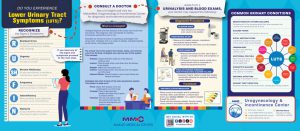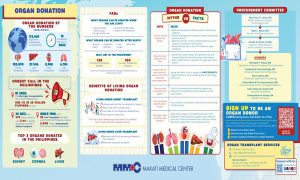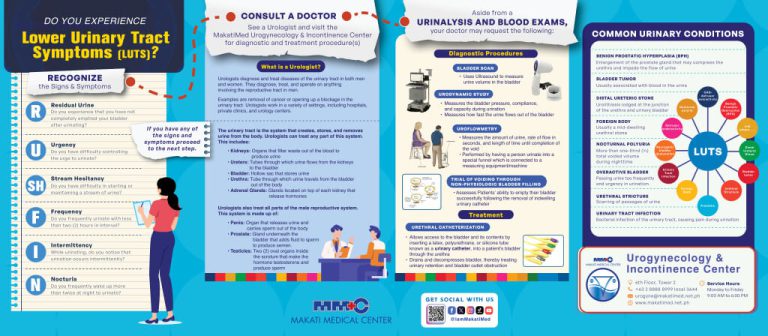One day, you’re looking for keys you picked up moments ago, wondering where you placed it. Another time, you were staring at a blank wall trying to recall what you wanted to do with it. Maybe you once drove out to buy something, then realized you left your purse at home.
Everyone experiences memory lapses. Younger people may also have this bothersome problem, but as you age, it becomes more and more prevalent.
While forgetfulness and memory lapses are often attributed to normal signs of aging, memory disorders such as dementia and Alzheimer’s disease are not. According to the World Health Organization (WHO), dementia is not a normal part of aging, but a syndrome resulting from a chronic illness or injury. People who suffer from dementia have difficulty not only in memory retention, but also in orientation, language, and even judgment.
Dementia affects more than 50 million people worldwide, 60% of which live between low to middle-income countries. Furthermore, around 60-80% of those affected by dementia suffer from Alzheimer’s disease. Sadly, it is often undetected because of seemingly common symptoms such as forgetfulness, becoming lost in familiar places, and losing track of time.
Eventually, the condition begins to affect the individual’s cognitive function, emotional control, and social behavior.
What Can I Do to Prevent Memory Disorders?
Although experts have considered age and genetics to be causes of dementia, researchers are still exploring the impacts of other factors such as physical fitness, diet, and even cardiovascular factors. Darwin A. Dasig, MD of MakatiMed’s Memory Plus Center advises that boosting your brain needs effort.
“Just as staying fit and healthy takes tremendous effort, boosting your memory and maintaining a sharp mind requires some work, too,” Dr. Dasig says. “Take cues from the measures usually taken to have a healthy body—these work the same wonders for the mind.”
Here are 10 ways that can help sharpen your brain, and reduce the risk of developing memory disorders:
1. Observe a healthy diet
Watch what you eat. Increase your intake of fruits and vegetables, as well as complex carbohydrates such as whole wheat bread, oatmeal, fiber and cereals. Reduce your consumption of food that has saturated fat like butter, cheese, and cream.
2. Maintain a regular exercise routine
Engaging in physical activities improves blood circulation throughout your body, including your brain. Even simple exercises such as walking can help keep your body and brain in tip-top shape.
3. Drink red wine in moderation
Studies show that drinking red wine can prevent memory loss, and also improve mood function in old age. Dr. Dasig explains that it can also improve blood flow to the brain and reduce the risk of Alzheimer’s disease.
4. Engage your mind
Just as muscles need exercise to stay strong, your brain also needs to train on its own. Reading books and magazines can help your brain stay sharp while you feed it with new information. Challenge your brain with activities that encourage thinking like chess and scrabble, or try out a few digital games and tools.
5. Organize your things
Reduce the clutter in your room or house. Add labels to cabinets and drawers, post sticky notes to piles of papers, and make sure to limit distractions. When you’re trying to remember something, the last thing you need is a randomly placed figurine to catch your attention.
6. Take up new hobbies
Go to new places, learn to play a musical instrument, and engage in new activities. Doing these things lets your brain process new information, keeping it alert and sharp.
7. Stay social
Attend social events and gatherings. Talk with people you know, and people you don’t know. Engaging in small talk will help your brain think fast enough to respond in conversations. Going out with family and friends may also help reduce stress and anxiety.
8. Sleep well
Sleep deprivation affects your cognitive function throughout the day. Make sure to get 7 to 9 hours of sleep daily to keep your brain refreshed and ready for the next day.
9. Take prescription medicines moderately
Some over-the-counter drugs may cause side effects that can affect brain function. These include antihistamines, antidepressants, blood pressure medicines, and painkillers.
10. Manage stress
Uncontrolled stress and anxiety can cause brain function difficulties. Cortisol, the hormone that is released in stressful situations, can damage brain cells over time. When you are under stress, you may find it more difficult to learn and process new information.
While all these tips can help boost your brain function and generally prevent memory disorders, there are instances wherein one may need a more direct approach. This is when the memory retention problem goes beyond forgetting simple things, and may include:
- Forgetting names of close family members and friends
- Difficulty in following the flow of conversations
- Problems functioning normally such as eating, washing, etc.











